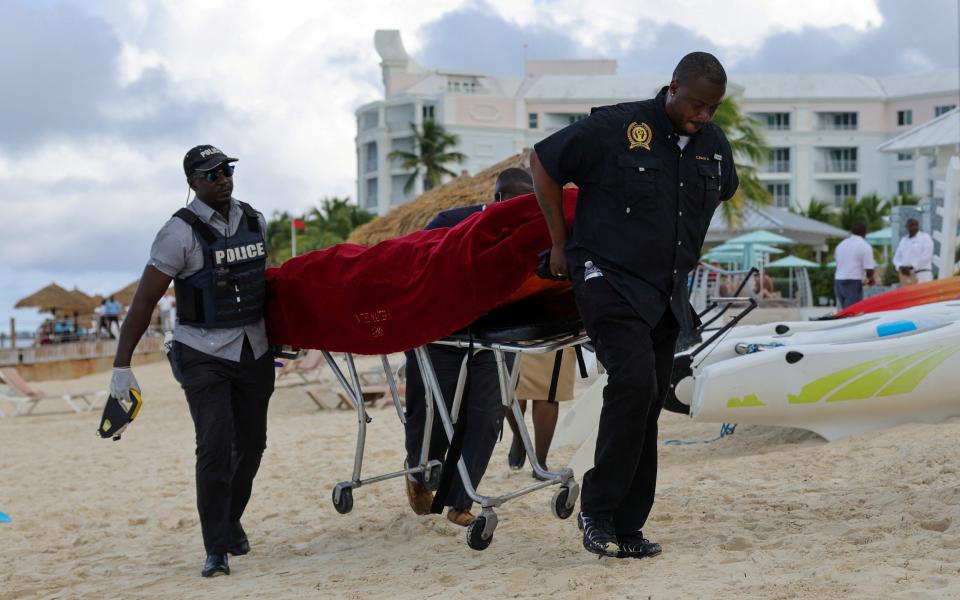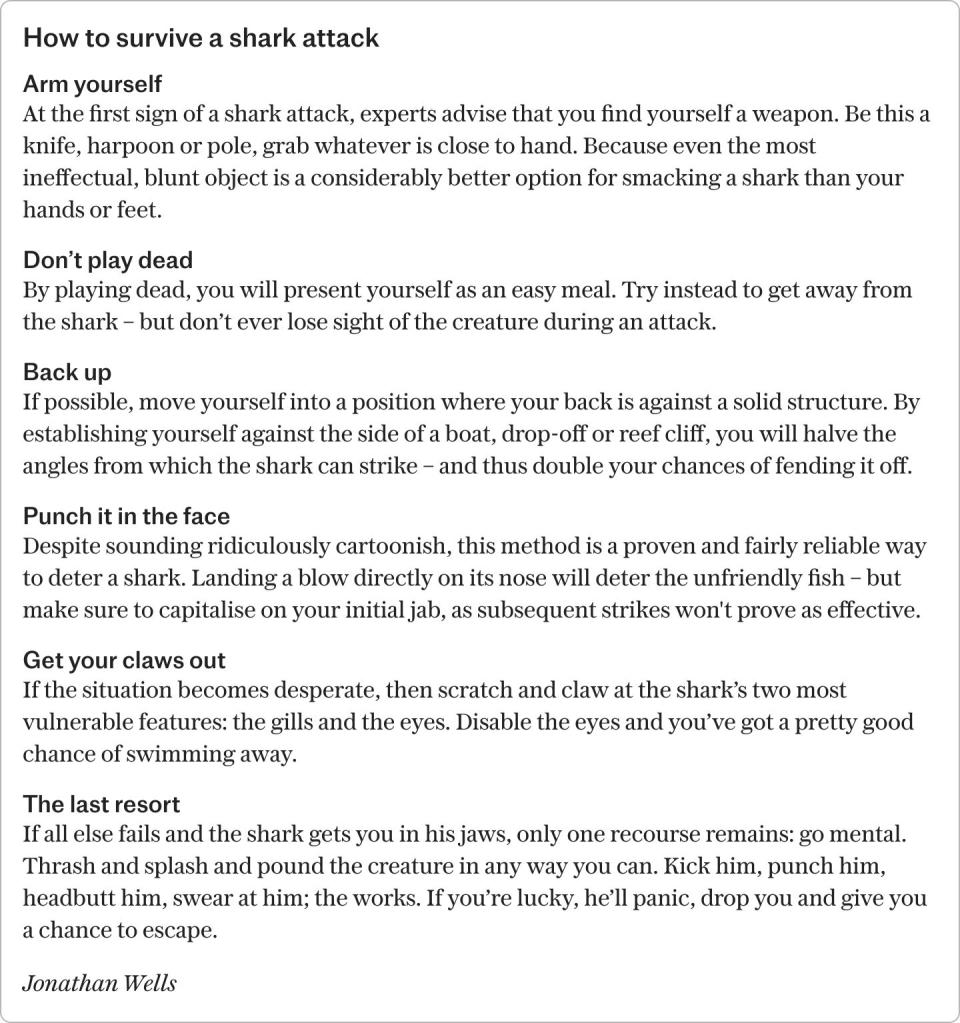American bride killed by shark in Bahamas was ‘beloved’ maths teacher

A bride mauled to death by a shark in the Bahamas a day after her wedding has been named as Lauren Erickson Van Wart, 44, a maths teaching specialist from Massachusetts.
Ms Van Wart and her new husband were paddleboarding on Monday when they were attacked by the 14ft predator.
She was knocked off her board when the shark pulled it under, and suffered severe bites along the right side of her body. She was dead by the time she was recovered by lifeguards and brought to the beach.
Her husband was not injured in the attack, which happened about three-quarters of a mile off shore and was the second in the Caribbean country in a month.
Ms Van Wart lived in Lowell, north of Boston, and worked as an editor for a company called Curriculum Associates, which provides resources for schools.

She and her new husband were honeymooning at the five-star Sandals Royal Bahamian Resort on New Providence island.
The company Ms Van Wart worked for said her friends and colleagues were “heartbroken” and paid tribute to her commitment to students.
“Our team is heartbroken and grieving the loss of a dear and trusted colleague and friend,” it said.
“Lauren was a beloved member of our math editorial team, and she infused her deep dedication to students and educators into every material she touched.”
The firm added that it extended “our deepest love and support to Lauren’s wonderful husband and all of her family”.
Neighbours in Lowell said they were devastated to hear of her death.
“Trip of a lifetime. It’s heartbreaking, it really is,” Lowell resident Stack Emerson told CBS News. “Shocking. These poor people, they probably looked forward to this vacation for months.”
It was not known what species of shark killed Ms Van Wart. The Bahamas have healthy populations of around 40 different species, including bull sharks, tiger sharks and hammerheads, all of which can be aggressive towards humans.
A 47-year-old German woman vanished there last month, and was believed to have been mauled to death while diving.
Worldwide, the chances of being killed by a shark are about one in four million. But the number of attacks has grown as the global population has increased and as more people spend time in the water, according to the International Shark Attack File, compiled by the Florida Museum of Natural History.

The fact that there have been three fatal shark attacks in the Bahamas in the past year could not be considered statistically significant, Gavin Naylor, the ISAF’s programme director, told The Telegraph.
“We’ve had two fatalities in two weeks, which always raises eyebrows. But until we see more of a trend, I don’t think it is worrying. If we were to see another one or two in the same area, we would be looking into it,” he said.
Prof Naylor, who is originally from Peterborough, added: “There’s a lot of sharks in The Bahamas and there are a lot of people going in the water. It’s a probability issue.”
One factor which can contribute to the likelihood of an attack is if tour operators tip “chum” – mashed-up fish blood and bones – into the water to attract sharks for visitors to observe.
“If you put food into the water, it’s like ringing a dinner bell. It’s Pavlovian. It makes them bolder,” said Prof Naylor.

 Yahoo News
Yahoo News 
